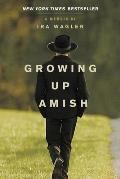The experiences of Ebenezer Scrooge show us that Christmas is about being kind and generous and embracing relationships. Once a miserable, stingy, hate-filled old man, Scrooge learns to keep Christmas as well as anyone living.
For Ralphie, Christmas is mostly about getting a Red Ryder BB gun, and a little bit about spending some time with family making memories.
The Grinch's heart grows three sizes when he realizes after he has stolen all of Whoville's presents, decorations, and Who-ham that Christmas comes anyway. Christmas is far more than Christmas presents.
The stories of Christmas tell us that the holiday is about being a little nicer, feeling a little warmer, being more inclined to perform acts of generosity and kindness to our fellow human beings. And doing all of these things gives us that--well, you know--that feeling of Christmas, children laughing, people passing, meeting smile after smile while hearing silver bells ringing on every corner.
As much as I love the stories of Christmas, though, most of them get it wrong. Most of them communicate that Christmas is about something we do, something we get, something we make, or something we buy. But how empty a Christmas created by us leaves us! The decorations come down. The presents break, get old, don't fit, get returned. The little love we've put in our hearts for our fellow man drowns in January's slush. We find ourselves asking Charlie Brown's question: "I guess I don’t really know what Christmas is about. Isn’t there anyone who understands what Christmas is all about?"
And Linus gives Charlie Brown the best answer:
“And there were in the same country shepherds abiding in the field, keeping watch over their flock by night. And lo, the angel of the Lord came upon them, and the glory of the Lord shone round about them, and they were sore afraid. And the angel said unto them, ‘fear not, for behold, I bring you tidings of great joy which will be to all people. For unto you is born this day in the city of David a savior, which is Christ the Lord. And this shall be a sign unto you. Ye shall find the babe wrapped in swaddling clothes lying in the manger.’ And suddenly, there was with the angel a multitude of the heavenly host, praising God and saying, ‘glory to God in the highest, and on Earth peace, good will toward men.’”
For George Bailey, that old building and loan will continue to struggle to survive, Uncle Billy will continue to drink too much, and chances are good that George will never get to go to college or travel around the world. Scrooge will find that despite his best efforts at good will toward his fellow man, he will continue to be frustrated with fellow humans who are irresponsible, tardy, and, in his opinion, spendthrifts. Ralphie will outgrow his BB gun and want something bigger, more expensive, and, most likely, well beyond his grasp. And the Grinch will find that a heart that grows is not necessarily a heart that has been changed and will continue to battle the demons of jealousy and bitterness despite the warm feelings he experienced in Whoville that Christmas day.
But Linus's Christmas story give us hope because it isn't about us. It isn't a story of our becoming stronger and improved as we come to a better understanding of who we are and what we have; it is about God taking the form of a baby, becoming smaller and weaker than those He would save. It isn't about obtaining the very things of this earth that our hearts most desire; it is about God giving up the glories of heaven and living a life of poverty to rescue us from hell. It isn't about how we generate peace and good will from inside ourselves as we reach out to others, donate to our favorite charities, or lend a helping hand. It is about the peace and good will that God offers to us as He sends His Son to die so that we can be reconciled to Him. It isn't about a season; Christmas is a reality that will carry us through the disappointments and tragedies of life, whether they happen in February, May, or October. It is about a happy ending that continues beyond the happy ending, whose next chapter does not disappoint.
~Charles Wesley
Come, thou long expected Jesus,
born to set thy people free;
from our fears and sins release us,
let us find our rest in thee.
Israel's strength and consolation,
hope of all the earth thou art;
dear desire of every nation,
joy of every longing heart.
Born thy people to deliver,
born a child and yet a King,
born to reign in us forever,
now thy gracious kingdom bring.
By thine own eternal spirit
rule in all our hearts alone;
by thine all sufficient merit,
raise us to thy glorious throne.







 "I'd like to invite you to join me as we think about the 'next story,' a story we are living right now--life after the digital explosion. We'll explore some suggestions and ideas for how we as Christians can live in this new reality with character, virtue, and wisdom. And we'll examine how we can respond to these revolutionary changes as followers of Christ in a digital age, learning to live faithfully as the next story unfolds."
"I'd like to invite you to join me as we think about the 'next story,' a story we are living right now--life after the digital explosion. We'll explore some suggestions and ideas for how we as Christians can live in this new reality with character, virtue, and wisdom. And we'll examine how we can respond to these revolutionary changes as followers of Christ in a digital age, learning to live faithfully as the next story unfolds."
